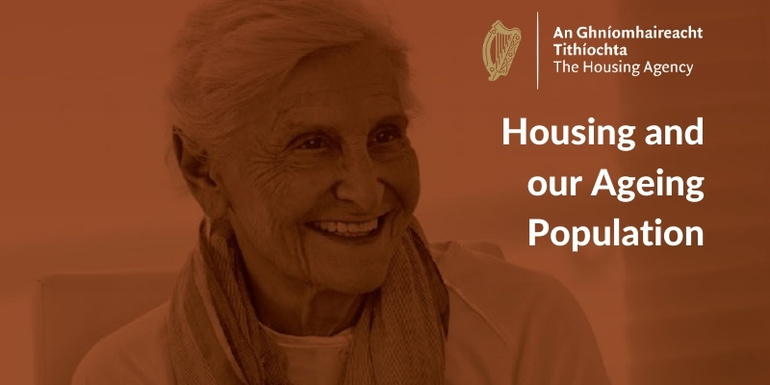
The State could save €900 million over 30 years[i] as a result of direct public investment in Supported Housing for older people, research conducted by The Housing Agency has found.
‘Thinking Ahead: The Financial Benefits of Investing in Supported Housing for Older People’, found that, by supporting people to live in homes suited to their needs, an average annual Government saving of €4,650[ii] per person can be made, compared to that individual remaining in their current home or moving into long term residential care.
The figures are based on the provision of Supported Housing for 11,400 people over the next 10 years, a number derived from expected projections in Ireland’s population aged over 80 during this time period.[iii]
Supported Housing is housing built specifically for older people, offering some level of care and support.
At the launch of this research today, co-authors Roslyn Molloy and Rory Mulholland outlined the range of Supported Housing options explored and the benefits derived from each:
· Independent Living accommodation (where a low level of additional services would be required) provided through social housing for one older person would generate an annual benefit of €4,700.
· Assisted Living accommodation (where there may be a healthcare manager, housing manager, or an activities coordinator on site, and day care/primary care centres nearby) provided through social housing for one older person would generate an annual benefit of €5,200.
· Specialised Living accommodation (where social and healthcare staff would be on-site, meals would be provided, and care supports would be available 24-7, similar to nursing home care) provided through social housing for one older person would generate an annual benefit of €2,200.
Privately-funded Supported Housing could potentially generate annual savings of €4,000, €9,200 and €20,000 for each accommodation type respectively. Additional savings from private provision are due to the absence of capital costs being met up-front by the State.
Launching the report, Minister of State with responsibility for Local Government and Planning, Peter Burke TD, said:
“As a nation we are living longer, and the number of older people in our population is set to grow significantly in the next ten years. In response, this Government recognises the need to plan ahead to meet the housing and healthcare needs of an ageing population. This research is a significant step in our ongoing work in this area.”
Chief Executive of The Housing Agency, John O’Connor, said:
“While this research began pre- Covid-19, its relevance as we continue to deal with the global pandemic is clear. This year has shown us the power of community.
“Through Supported Housing, many older people can remain in their own communities and maintain a level of independence that would otherwise be lost. It strengthens their connection to family and friends, and provides them with a secure home.
“For many people, residential nursing home care may be the most appropriate form of care into their later years. However, for many the availability of a Supported Housing option would provide a welcome alternative and come with a significant saving to the State. Such savings come from preventing or delaying the need for an older person to access nursing home care, but also by reducing the care needs of those who would otherwise stay in standard accommodation.”
Research outlined in Thinking Ahead: The Financial Benefits of Investing in Housing for Older People was conducted as part of a range of recommended actions under the policy statement ‘Housing Options for Our Ageing Population’, published by the Government in March 2019.



